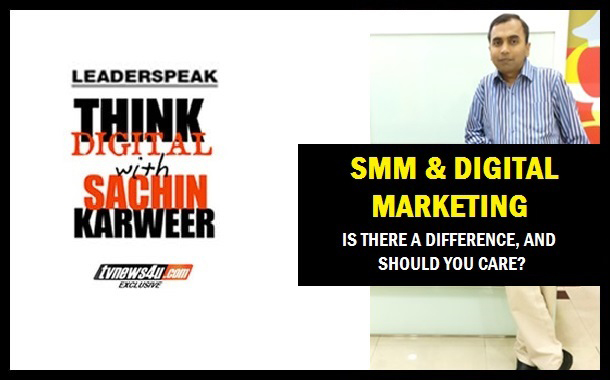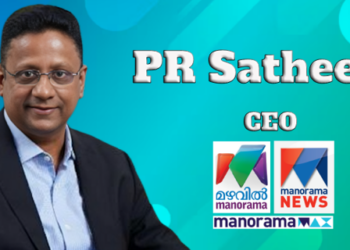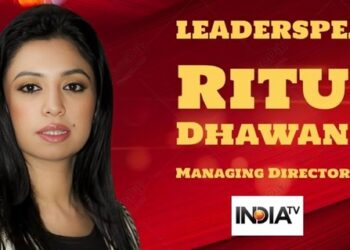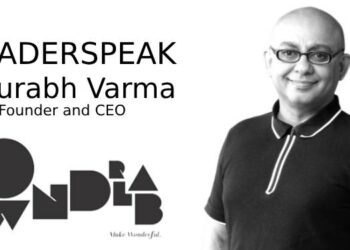SMM vs. Digital Marketing: Is There a Difference and Should you Care?
By Sachin Karweer, Business Head – HGS Interactive
Welcome to the next theme on Think Digital. It has to do with something many people don’t seem to realize — that although Social Media Marketing (SMM) and Digital Marketing are similar, dependent and overlapping in some areas, there is a marked difference between the two. So: SMM vs Digital Marketing – Is there a difference and should you care?
Let’s see.
The Digital Age and its Irreversible Impact on Marketing
To give you a brief history, digitization began in 1982 and ever since then, there’s been no looking back. With a steady increase in the use of digital technologies, it has become increasingly important in most sectors of economic activity today.
Digitization has also moved onto products like the television, telephone, watches, cameras and even the media we consume. With this, the level of connectivity across various devices, people and locations also increased exponentially.
Let’s not forget that at the heart of this expansion was the internet boom. Connecting billions of people and organizations worldwide, the internet enabled the lightning fast transfer of information, thus giving rise to the Digital Age.
It was this very age that provided the impetus for several companies to rethink the role technology plays, as evidence already began to show the extent of its global impact. The development of Internet technologies and subsequent adoption has had profound consequence son marketing. It has changed the world of buying and selling for good.
With the variation in the use of the technologies, new terms like ‘digital marketing’ and ‘social media marketing’emerged… thus bringing us back to our current timeline of the present.
The Birth and Rise of Digital Marketing & SMM
It was now the era of internet marketing and marketers adapted to utilize all the tools at their disposal to identify and catch new leads.The order in which products and services were positioned, strategically promoted, purchased and distributed changed drastically.
Today, the world wide web offers a plethora of options for consumers. There is a paradigm shift in the roles played by marketing agencies as well. With the consumers getting more fluent in their movement across channels and in their use of multiple channels at once, even the so-called traditional agencies are learning the ropes of online marketing.
Digital Marketing: A Brief Introduction
Having covered digital marketing in detail in a previous edition (you can read it here),let me give a brief introduction for the benefit of my new readers.
Digital marketing is often referred to as being an ‘umbrella term’ as it encompasses all engagement tools that operate through the internet. These tools include SEO, SEM, PPC, web design and development, email marketing, Google Analytics, social media, mobile marketing, blogging and online banner advertising.
It also involves promoting messages and engaging on social media platforms like Facebook, LinkedIn, Pinterest, Instagram, Twitter, Google+, Snapchat and Tumblr. These giant platforms are used by several companies the world over to convert eager audiences into devoted and loyal customers.
To put it simply, digital marketing is a technique of advertising while social media marketing is actually a part of the digital marketing technique.
Social Media Marketing: A Brief Introduction
For most of us, social media marketing needs no introduction; for those who do, I have covered the topic in some detail here. To put it succinctly, social media marketing is a part of digital marketing, and it works as a subset or a component of it.
SMM is one of the available channels of digital marketing along with SEO, PPC, PPV and email marketing. It’s important to note here that social media marketing is restricted to the limits of the Internet.
The usage of social media has increased tremendously over the last couple of years and is a global phenomenon today. Social networking has become pervasive in the world, giving a voice to individuals, businesses and communities around the world.
Social media users are able to exchange ideas, compare opinions and pass comment on the activities of their friends and family, work together, learn and enjoy as a group, and even buy and sell. They are not only generating humongous amounts of data about themselves, but also enabling collaboration with others worldwide.
Social media is great to build long term relationships with existing customers as well as potential ones. Social media marketing is a form of digital marketing, but more specific. It refers to the strategic promotional campaigns that are held on social media platforms alone.
A simple way to remember this is to understand that social media marketing is always digital, while digital marketing is not always social.
Connected by Close Family Ties, But Still Worlds Apart
People tend to use the two terms ‘digital marketing’ and ‘social media marketing’interchangeably. However, they are not the same. Let me tell you how exactly the two differ one another.
It is best to begin with a working definition of digital marketing:
Digital marketing is the application of digital technologies to achieve corporate goals through meeting and surpassing needs of the customer better than the competition.
Digital marketing is part of the overall process of marketing and the usage of digital media to increase awareness of a product or service.It is completely focused on all intended interest groups and they respond to digital advertising as shown by their level of interest. In contrast to that, social media marketing is more engaged and focused and includes individuals who have basic interests.
Let’s look at it this way; digital marketing is a much wider area of work compared to social media marketing. How?
- For one, it goes way beyond the Internet and tries to reach out to people offline as well.
- Secondly, it seeks to contact individuals in the disconnected world using digital means.
- Thirdly, digital marketing efforts may incorporate one or more than one channel. This includes television, internet advertising, mobile advertisements, SMS, multimedia messaging service (MMS), callbacks and so on.
Now, let’s move on to social media marketing, which like digital marketing is also a complex phenomenon but simpler to grasp now that you have understood the crux of digital marketing.
- Social media marketing utilizes social platforms to showcase a brands product, service or business.
- It is restricted to the limits of the internet and the social platforms it is featured on.
- It is more focused and engaging as it not just allows for better consumer interaction, but is a great tool to reward loyal consumers, thus retaining them for longer.
More than half of marketers who have been using social media for at least a period of two years have stated that it helped them improve their sales.Interestingly, it has been found out that when social media is part of a buyer’s journey, customers tend to convert at a 129% higher rate.They are also four times as likely to spend more than those without a social component.
According to Social Media Examiner’s 2016 report, at least 90% of marketers want to learn about the most effective social tactics and the best ways to engage their audience with social media.
The social network Facebook is closing in on the two billion user mark this year.This means that statistically Facebook is too big to ignore and must therefore be made an integral part of any social media marketing strategy. It is also necessary to know that Snap chat is going to evolve enormously and become a powerful and interesting social media marketing platform in 2017.In recent times, live video streaming has been changing the scene of social media campaigns, and the trend will see a rise next year as well with different platforms like Facebook live, Twitter, Snapchat, and Instagram adopting it in their strategies.
The Benefits of Both and How They Work Together to Form the Perfect Union
The benefits of digital marketing are plenty. It covers a broader spectrum of platforms at lower costs, the activities have a longer shelf life and it is easy to evaluate and analyze. It can reach a larger number of consumers, and realizes a higher ROI while showing real time results.
On the other hand, social media marketing works as a tool to increase traffic, better the brand’s search rankings, improve consumer and industry insights, monitor competitor marketing efforts and increase brand awareness.
For the eagle-eyed marketer, it is clear that both the above are essential for a well-executed marketing plan. Digital marketing is a great way to publicize and advertise your brand, but it is social media marketing that will truly communicate the essence of a brand and differentiate it the rest. With its customization and ability to interpret and evoke consumer relationships due to its social nature, social media marketing is the emotional connect that engages and influences your consumer.
The Million Dollar Question Answered
Which of the two is more important, ‘digital marketing’or ‘social media marketing’?
Often, I recommend a balanced use of both, but the answer to this truly depends on the type of brand, products or services that need to be promoted and the ultimate goal of the business.
There have been several times when forms of digital marketing have been more appropriate to create awareness than the use of social media, and vice versa.
It is essential to understand the different types of digital and social media that is availableto develop a marketing communication strategy, and which one best suits you to achieve one’s goals.
Let me give you an example, in a rural landscape, where the targeted consumer demographic is narrow,billboard ads and radio ads would be the selling point over the use of social media. However, it is necessary to note that though the audience would be small, the cost of creation and distribution would be high.
Similarly, if you are in the business of selling a software product, it would do you good to make use of social media to find new customers, while engaging your existing customers and keeping them updated about your service.
It is crucial to know the differences between the different marketing theories so that you can choose the tools most appropriate for you to use in your campaigns.It is all about orchestrating the data and creative insight to execute exceptional marketing strategies.
Digital technologies are molding business models, choice of promotional tools and media. Digital is the ‘centralplank’ which all communication agencies must be able to deliver. As a result, there has been a significant shift away more traditional communication tools. This shift in emphasis means marketers need to be aware of what they expect and how the technology can deliver their marketing objectives.
I would like to reiterate that both digital marketing and social media marketing is measurable. This enables brands tobuild tailored andoptimized brand experiences for its consumers.
Final Thoughts
I would like to sign off for now by saying that though both social media marketing and digital marketing are different, social media works best when integrated with other digital marketing efforts.
















